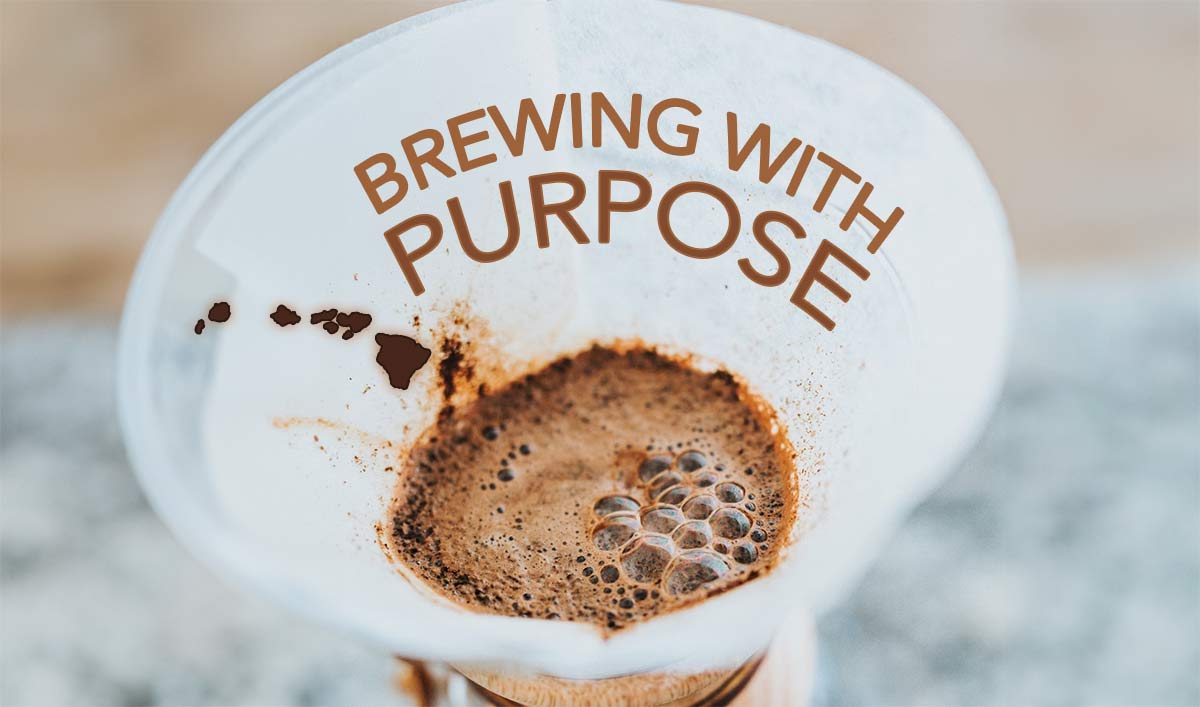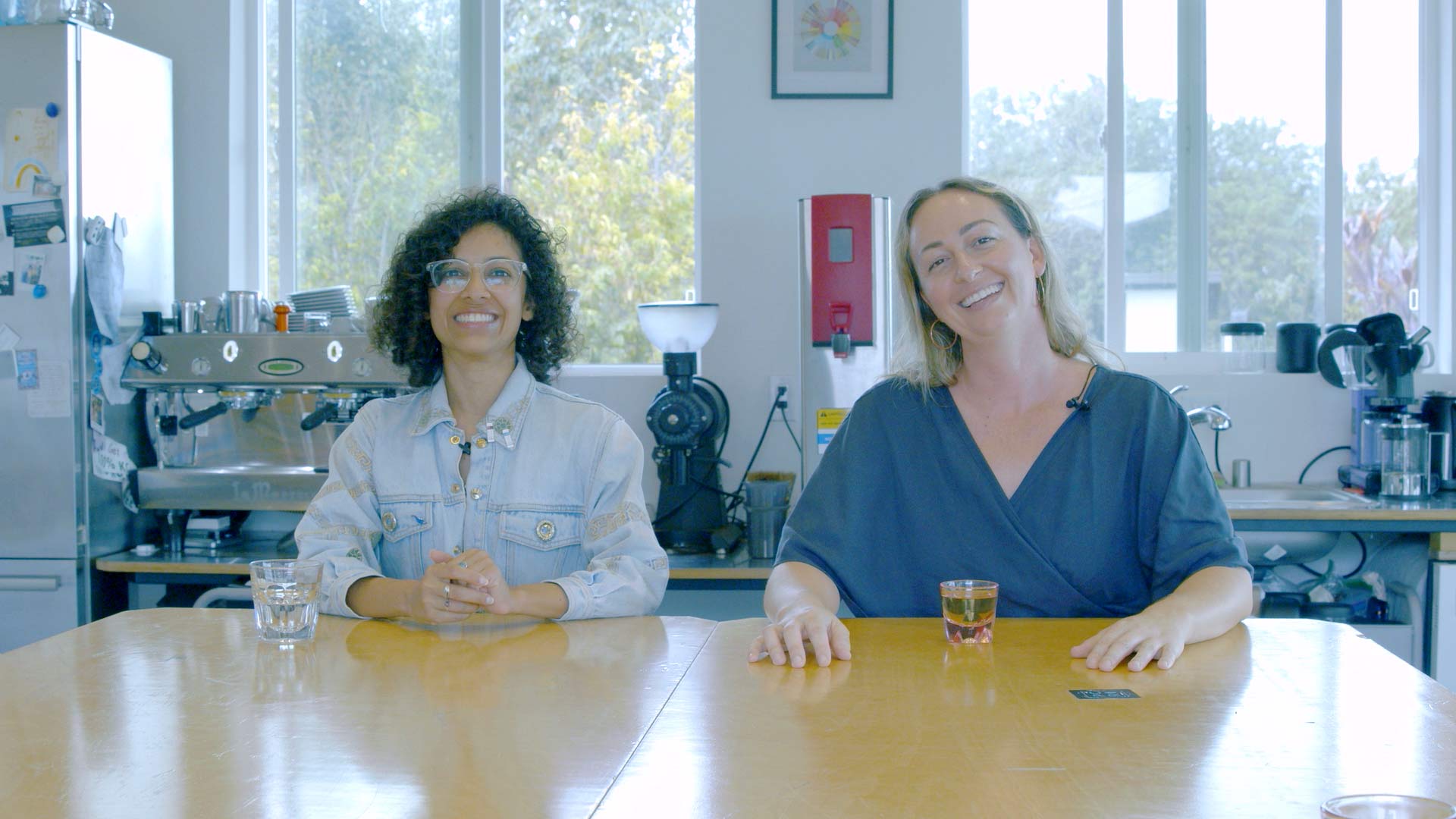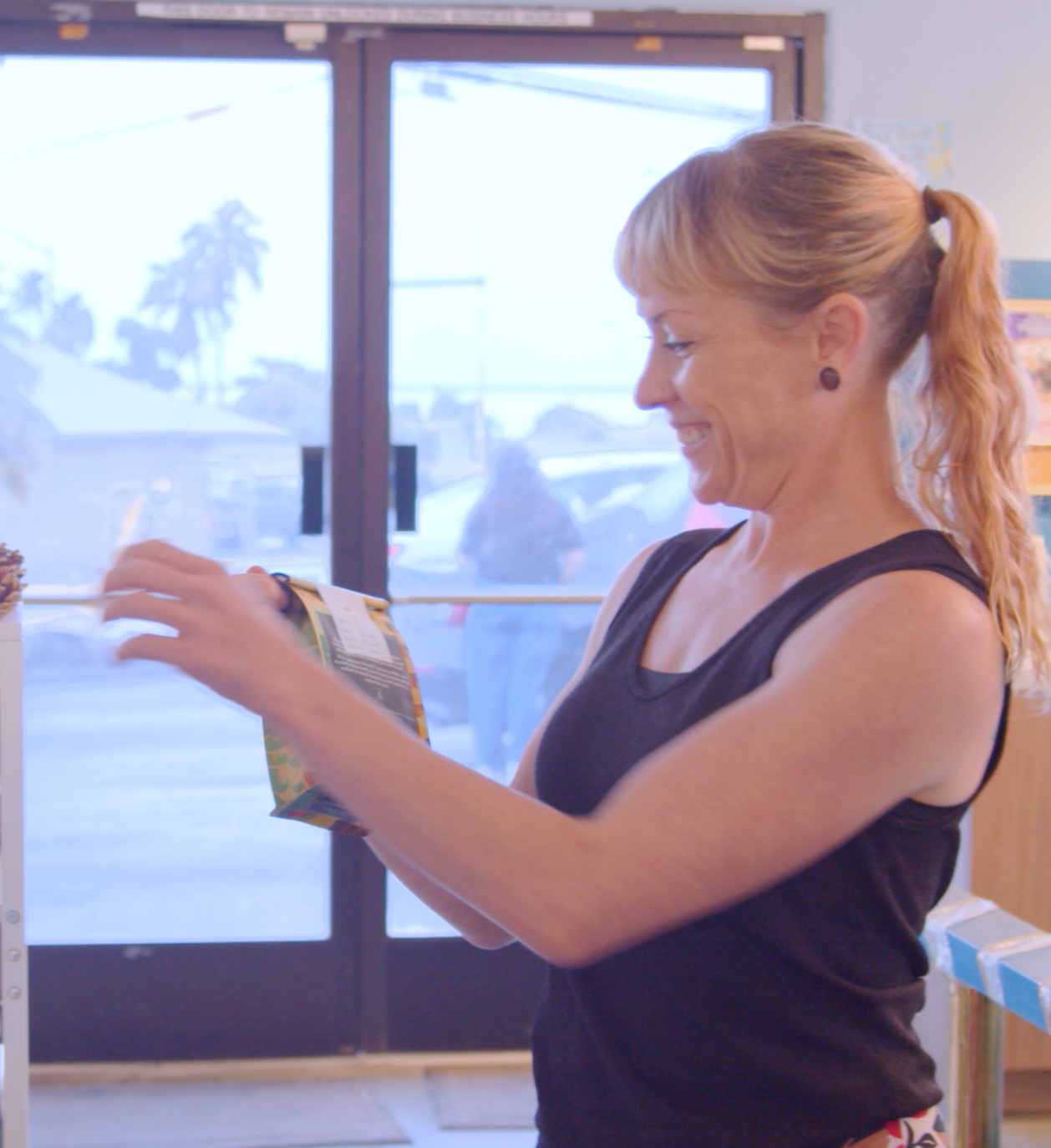Pacific Coffee Research and Big Island Coffee Roasters are set on Sustainability - what does this mean for Hawaiian coffee? There are so many avenues and channels to be sustainable in coffee; but what about coffee sourcing?
This is a huge topic in the coffee industry, gaining prominence especially in the specialty coffee world, where consumers and new generations that enjoy their cup of brew are eager and now learning to ask “where does this coffee come from?”
As we navigated the Pono Collective Hawai‘i Coffee Experience in January 2024, we learned about the origins of coffee in Hawai‘i including the history of different regions on the Big Island of Hawai‘i. There’s a very specific history with the demand of Kona Coffee as it rose in popularity in the early 1900’s, and there definitely have been many challenges along the way.
We sat down with some of our coffee packaging partners and great coffee industry friends here in Hawai‘i, Pacific Coffee Research and Big Island Coffee Roasters and talked about their values and goals on the importance of highlighting the source of coffees in Hawai‘i.
Pacific Coffee Research
Pacific Coffee Research, located in Makai Estates in Kailua-Kona, have a mission of illuminating the supply chain. As Hawai‘i’s first coffee education and professional training center, co-founders Brittany Horn and Madeleine Longoria-Garcia are “set out to change the Hawai‘i coffee industry through education, collaboration and support services.” As licensed specialty coffee professionals, they offer coffee consulting support and professional services to producers all throughout the island chain and roast their own coffees, labeling them with an emphasis on the farmer and region. “We want anyone that's consuming either our product or someone else's product to ask the questions that bring awareness about where this product is coming from and who it's coming from. So when we're sourcing coffees from Hawai‘i, we want to make sure that we're showcasing as much about the farms that we are sourcing from, who they are, where they're located, what varieties they grow, what is it that they're proud of, Where do they come from? For us, it's really about showcasing the farmer.” -Brittany Horn, Pacific Coffee Research.Big Island Coffee Roasters
Located in Hilo, Hawai‘i, is also on a mission to elevate the different regional offerings of Hawaiian coffees. Kelleigh Stewart and Brandon Damitz, co-founders of Big Island Coffee Roasters, stumbled upon a humble coffee farm for sale, and discovered an amazing community of farmers in the Puna region. With the counterfeiting of Kona coffees due to the popularity of the Kona name, Kelleigh and Brandon were set out on a mission to highlight Puna grown coffee. After earning a Grand Champion ribbon for a Puna Pink Bourbon at the Hawai‘i Coffee Association Statewide Cupping Competition, they utilized a local grant to open the first refining mill for local farmers to use in East Hawai‘i to work towards regional recognition as the first Puna grown winner. “We saw an opportunity to highlight these different regions and these different products and allow high end customers to taste and experience them like one would wine from different counties in California. And so our mission and hope is to create farm sustainability so that it protects the land and provides the community intergenerational opportunities in agriculture.” -Kelleigh Stewart, Big Island Coffee Roasters.These two stories are great examples of the importance of sustainability in specialty coffee, and the positive impacts of asking the question “where does this coffee come from?” It not only gives you just a bit more information about the coffee you are about to consume in terms of flavor, body, acidity - but also empowers the farmers that grow it, and all of the hands that went into creating a memorable coffee experience.
Interested in learning more? Check out Pacific Coffee Research and Big Island Coffee Roasters!



